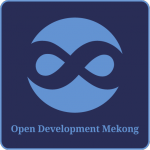Location
Open Development Mekong (OD Mekong) and related country websites are independent collectors and providers of objective data on development trends in the Mekong region. Regarding social, economic and environmental development, Open Development Mekong supports:
- Open data
- Information sharing
- Individual analyses
- Public awareness
- Informed dialogue
The OD Mekong platform is designed to capture and provide information across a wide range of development sectors, as can be seen by exploring the 16 categories listed on every page. This comprehensive view of development, also across borders, makes the OD Mekong platform unique.
Members:
Resources
Displaying 31 - 35 of 72The Population and Housing Census of Myanmar, 2014. Summary of the provisional results
This report summarises provisional results of Myanmar’s 2014 population and housing census. (Main census results released in May 2015.) The provisional results provide the total population by sex and administrative unit, from national, state/region, district down to township level. It also shows the population sizes of Yangon, Mandalay and Nay Pyi Taw cities, as well as the state/region capitals. Other indicators included are sex ratio and population density.
Transnational land deals for agriculture in the Global South: Analytical report based on the Land Matrix data
This report draws on the Land Matrix database to analyze and better understand the phenomenon of large-scale agricultural land deals. It focuses on:
» land acquisitions or investments (“deals”) targeting the Global South and Eastern Europe, including only low and middle income countries;
» transnational deals, excluding deals where only domestic actors are involved; and
» deals where the envisioned land use is agricultural.
The community forest movement’s strategic use of culture in rights claiming process: Reflections from field research
A letter from the Prime Minister dated 16 January 2008, and cited in the Constitution Court Ruling No 15/2552, in defense of the Community Forest Bill shows how “community rights” are often seen as contingent upon the responsibility of the communities to take care of the forest. Interestingly, the strategic rights claiming process and discourse associated with the community forest movement are also based on a similar argument of responsibility to protect the forest.
Water access, available land resources and impacts on food production: 3S hydropower development and Tonle Sap food security
A presentation on the effects of the 3-S hydropower development on water access, available land resources and impacts on food production. Presenters describe the 3-S river hydropower dam and its impacts, the importance of affected fisheries to Cambodia, and provide an overview of their research on the Tonle Sap. Presented at the Water‐Food Security in Cambodia conference, Phnom Penh, Cambodia, December 2‐3, 2013.
Cambodia: Land in conflict, an overview of the land situation
Conflict over land, combined with the systematic violation of land rights, is one of the most prominent human rights problems faced by Cambodians. The root of this problem can be traced back to the abolition of private ownership by the Khmer Rouge in 1975. This report provides an overview of the land conflicts and provides recommendations for resolving these conflicts.


